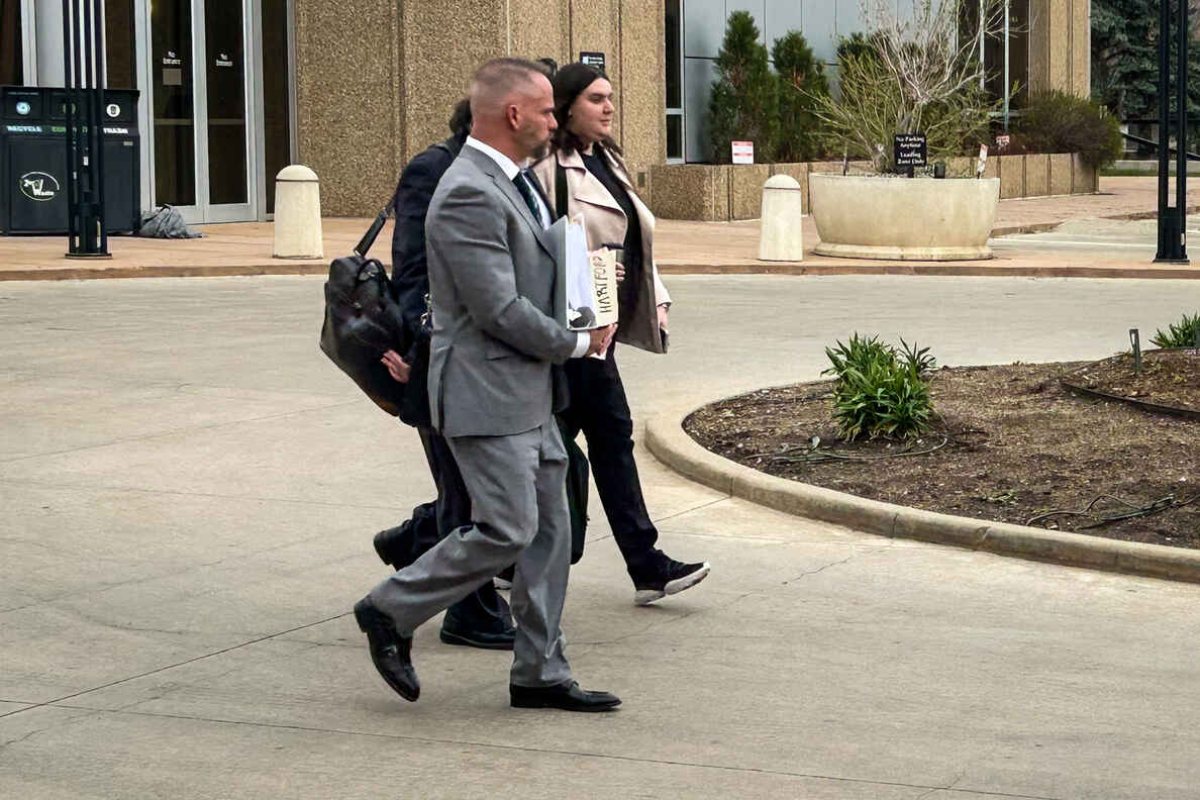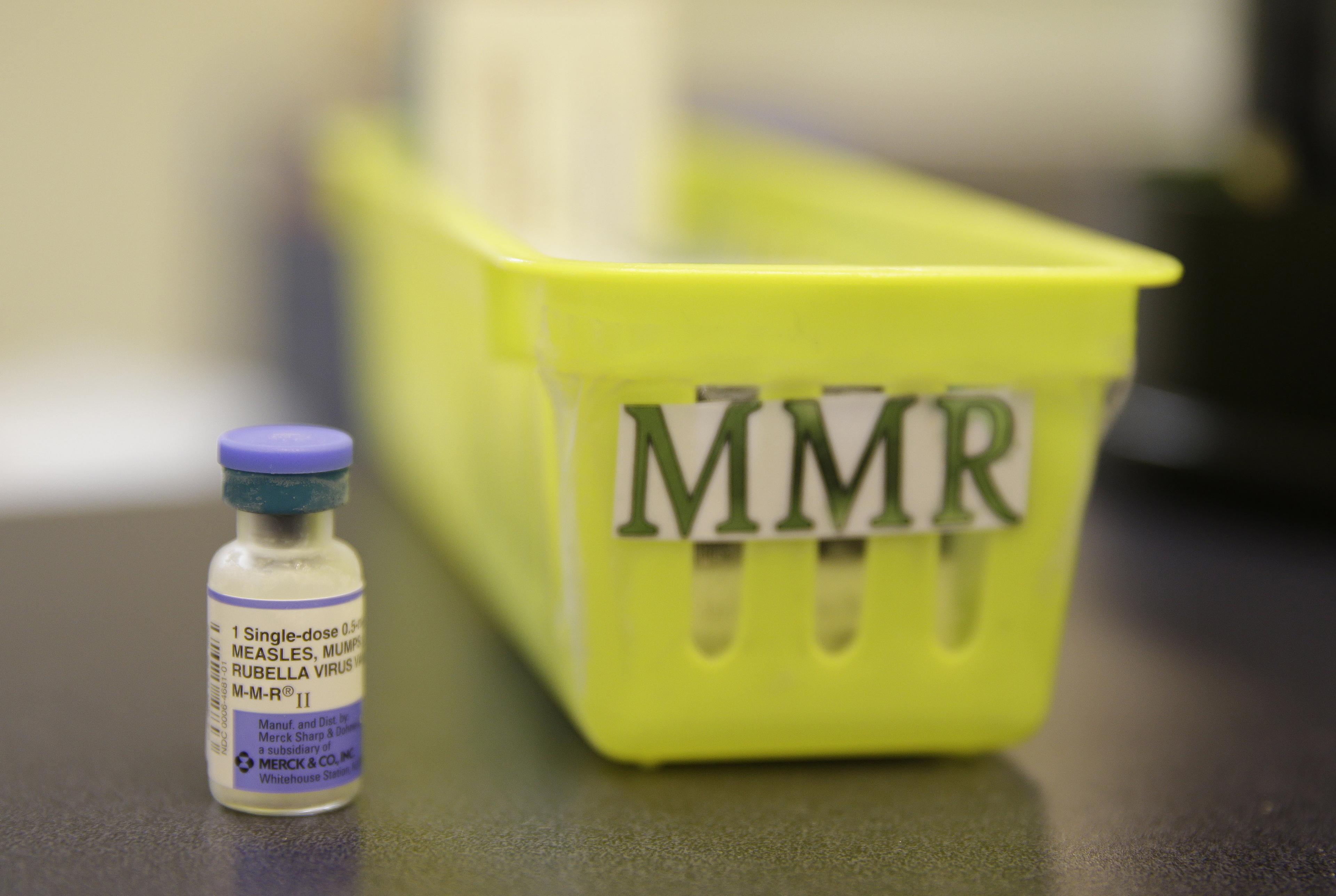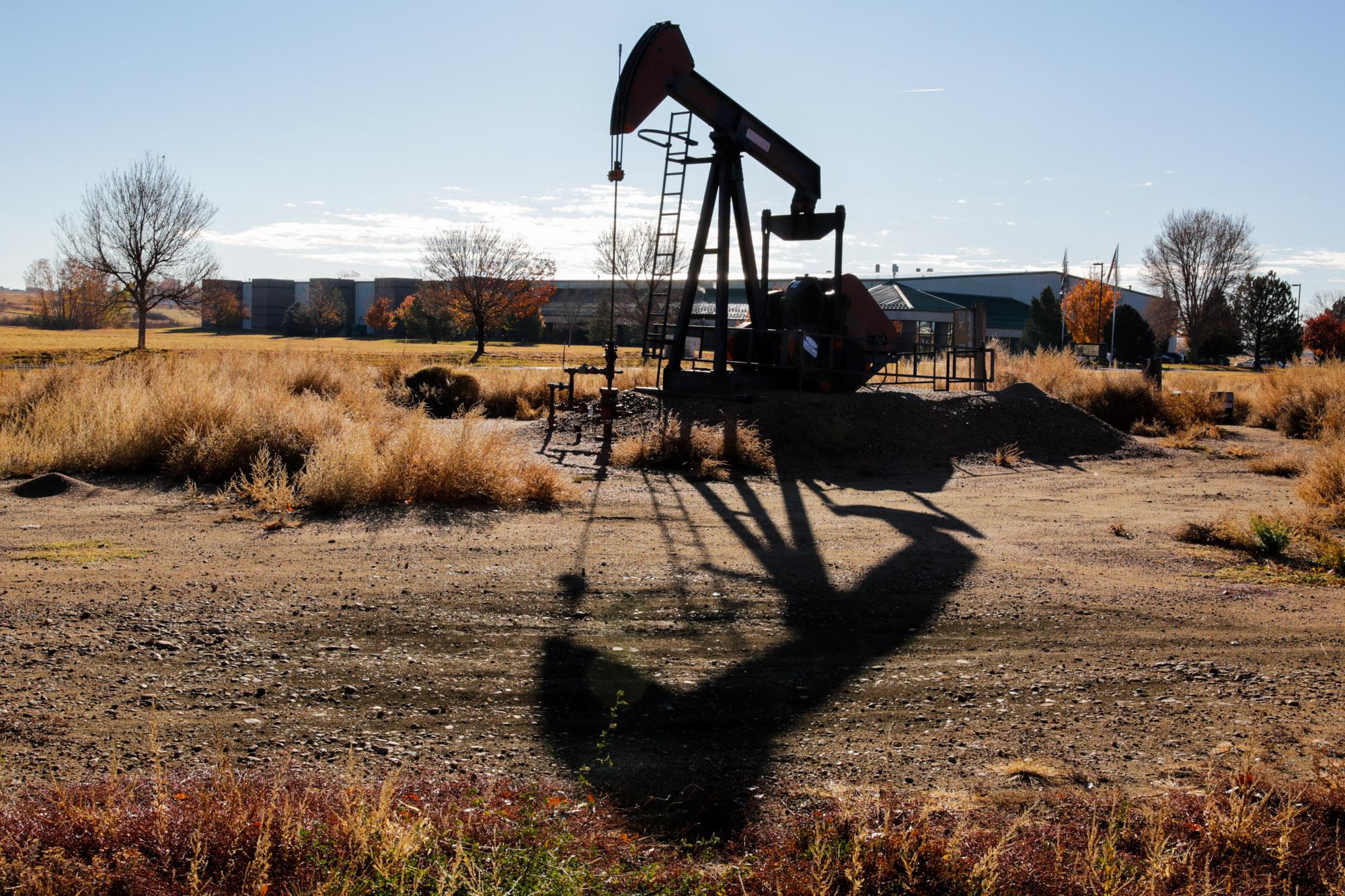
Colorado regulators earlier this year found oil and gas company K.P. Kauffman responsible for a “pattern of violations” at its oil-field sites, earning the company a $2 million fine — the second-largest ever issued by the state.
Now, the state is softening its penalty, ordering the company to instead focus on cleaning up leaks and spills at its sites. If it does so, the state will waive more than half of the initial fine.
The Colorado Oil and Gas Conservation Commission on Friday unanimously approved the agreement between K.P. Kauffman and the agency. The company will now have to pay $795,000 over five years and prove to the commission their oil-field operations are complying with state environmental and safety laws.
“Everyone is agreeing to stall out rights that exist and instead … create a path to allow [K.P. Kauffman] the opportunity to come into compliance,” said Commissioner Jeff Robbins, who brokered the agreement between the company and state.
The new plan is the outcome of weeks of litigation between state regulators and the company, which operates about 1,200 active wells across the state. It is the fifth-largest oil and gas company operating in Weld County, where most of its wells are located.
The company had reported 94 spills across Colorado since 2015, a majority of which were related to failing pipelines, according to a commission report. In 2020, K.P. Kauffman had five times the average number of spills of similar companies, according to the commission.
Some of K.P. Kauffman's environmental shortcomings
Commissioners had chastised K.P. Kauffman for disregarding state laws. In response, the company said it could not take proper care of its facilities because of financial strains stemming from the pandemic and low oil prices.
Some of those sites had still not been cleaned up as of November.
In 2019, oil-field workers contaminated soil and groundwater while removing a wastewater tank near Legacy Elementary School in Frederick, according to commission filings. Nearby residents told CPR News the company has left the site unattended for months, only recently erecting a fence around a massive hole that remains in the ground.
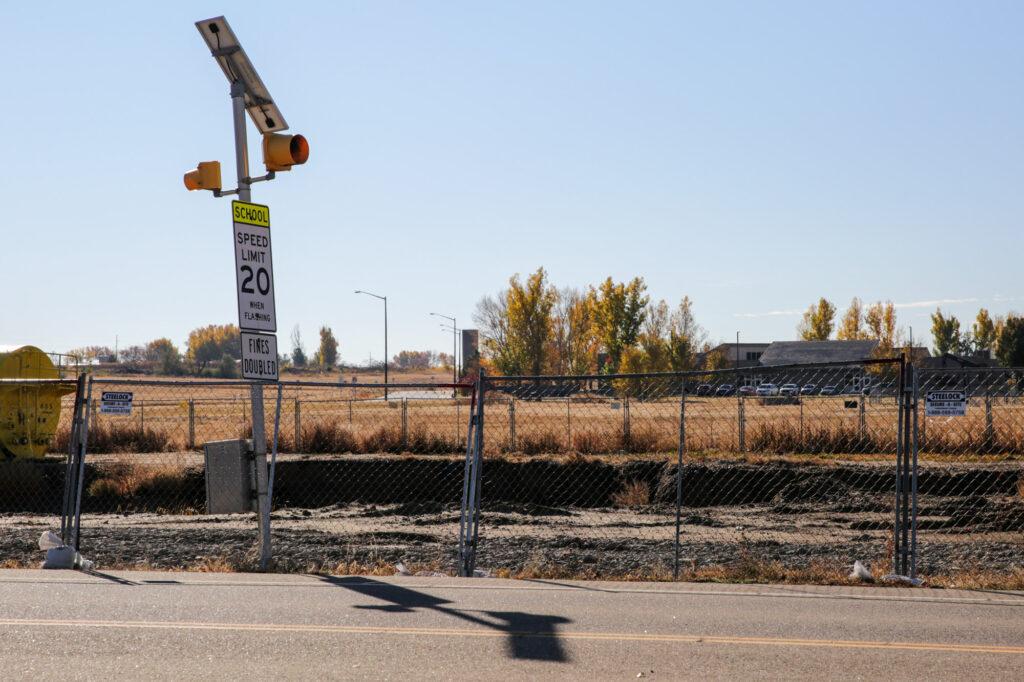
Chris Santiago, whose children attend Legacy Elementary, said the hole was an “eyesore” to the community. Santiago, who formerly worked in hydraulic fracturing, said the company's actions worsened an already negative reputation for the oil and gas industry.
“The kids that pass by it every single day, I mean, what kind of example is that leading for them, if they ever want to get into that industry?” Santiago said.
State oil and gas inspectors said the company also dug a hole near a farmhouse after a pipeline spill, which was closed off by a plastic safety fence and left to fill with stagnant water. The hole was still there as of November.
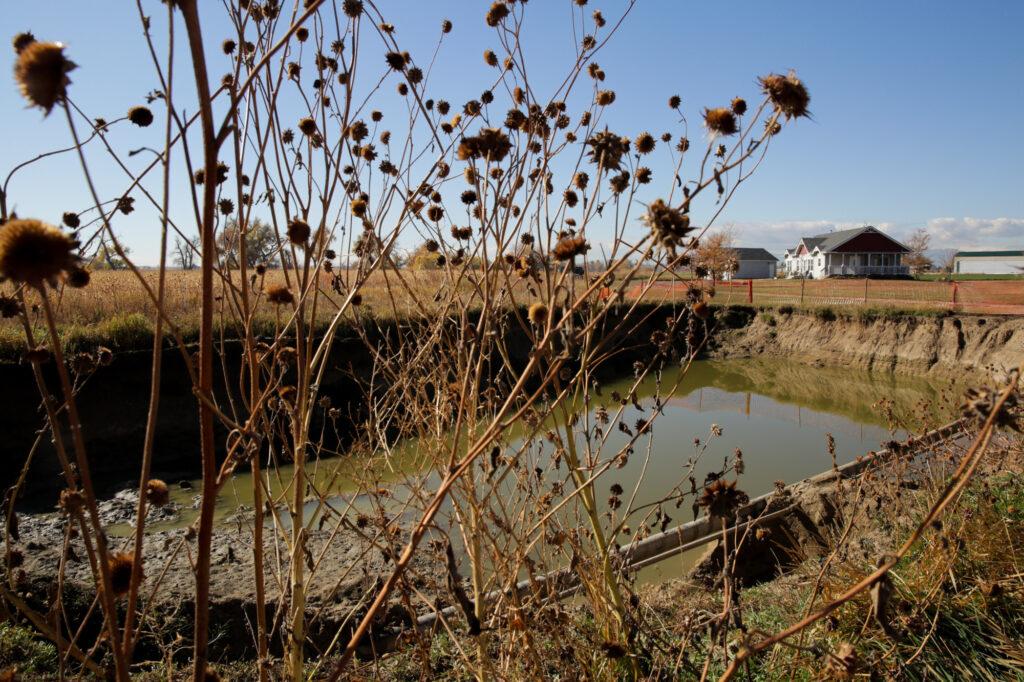
The commission said workers for the company also dumped soil from a spill site onto a field instead of a landfill and failed to inspect a broken pipeline that had been releasing natural gas into a high-priority habitat for native aquatic species for nearly a week.
What the company has agreed to do and why not all commissioners are content
The compliance agreement approved on Friday directs K.P. Kauffman to hire a contractor and finish remediation at four sites with existing violations, including the hole near Legacy Elementary. It also has to devise a plan to clean other facilities with alleged violations that have not been raised by the oil and gas commission.
Under the agreement, the company will open an account exclusively for remediation projects, study its pipeline system to determine what segments need to be replaced, develop a waste management plan and train its employees on how to report leaks and spills.
If the company does not follow the agreement and its deadlines, the oil and gas commission could reinstate portions of the original fine, including the full $2 million — and possibly more.
“Our Company appreciates the opportunity to resolve outstanding compliance issues and build on the Company’s 38-year legacy of oil and gas production as we work to assist the energy transition well under way in this country and across the globe,” CEO Kevin P. Kauffman said in a statement.
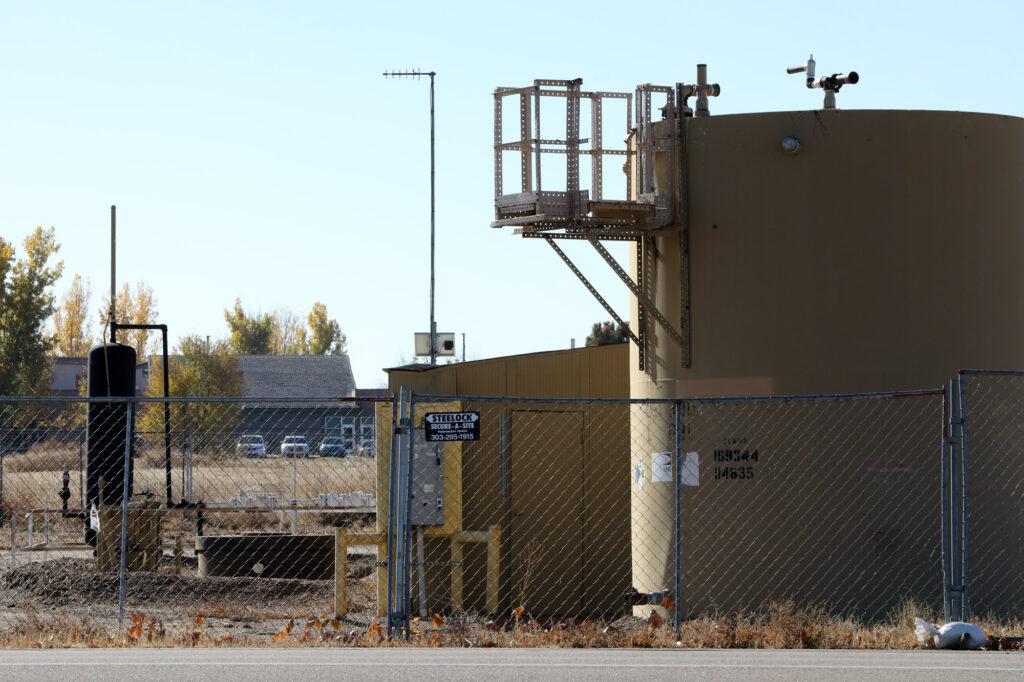
Despite the unanimous vote, some commissioners were doubtful of the compliance plan, saying it didn’t offer enough accountability measures and gave K.P. Kauffman a better deal than was initially ruled.
“I do see, also, a benefit to [K.P. Kauffman] in that they will not be having to pay … any penalties for potential violations,” Commissioner Karin McGowan said. “They would’ve had to make those corrections, remediations, anyway in addition to a penalty that might have been paid.”
Robbins and attorneys for K.P. Kauffman retorted, saying the company is still responsible for following the compliance plan and is now under stricter rules than other operators in the state.
“It’s a hammer, and bad things happen to my client if we don’t comply,” said John Jacus, attorney for K.P. Kauffman.
- Winter is coming, and so are the utility bill hikes for natural gas customers
- The federal government is poised to crack down on methane from the oil and gas industry. Can it learn anything from Colorado?
- Power companies’ plans to expand wind and solar on the Eastern Plains meet local headwinds
- Polis’ budget plan includes money to make public transit free during Colorado’s ozone season

